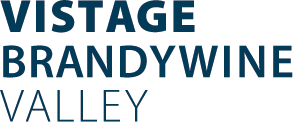Strengthen the Group, Vistage Fundamental #10
Seek and recommend candidates, with the goal of having at least 16 members, that will improve the quality of the interactions in the group.
Ask yourself, “Who is missing?” and then work with the members and the chair to fill that void. Regularly provide feedback on how the group is performing and suggest ways to improve.
Assist with the integration of new members by volunteering to be their “buddy” for the first 3 months.

by Steve Van Valin
Culturology
steve@culturologyworks.com
484-364-1171
Transcript
This is Steve Van Valin with Culturology, and I’d like to share this month’s fundamental for the Vistage Brandywine Valley Groups, led by our Master Chair, Jim Lucas. We have the Vistage Way, which is composed of 14 fundamentals, and each month, we take a focused look at one of them. This month, it’s number 10, to strengthen the group. Now, there is one aspect that I want to focus in on here, which says, “Regularly provide feedback on how the group is performing and suggest ways to improve.” One of the things I like about this statement is it shows a balance between feedback and then ways to improve. So let’s take a look at that.
First of all, feedback relates to the past. That gives people a context of what happened, and then, when we think about the future of what you can do about it, that’s what we would call coaching. So if you’re a sports coach, for example, you’d say, “Well, on that shot, you didn’t bend your knees, and on the next shot, what you want to do is really focus on bending your knees. Also, keep your eye on the ball and follow through.” So that would be the coaching part.
But there’s always something that stands in the way between being heard on, whether it’s feedback or coaching, and that’s whether or not we have trust with people. So I just wanted to very quickly cover a couple of tips on things that we can do to avoid breaking trust because trust takes a long time to earn, and it could be broken very easily when we’re giving feedback in coaching.
So first off, avoid pig pile coaching. So this is when we bring up multiple errors from the past when only one is currently relevant. So this is where we might say, “Six months ago, you also did that, and a year ago, I think you did a second time.” Where the person receiving that feedback in coaching goes, “Oh, my gosh. I can’t handle all of that.” When only the one thing in front of them is probably relevant and able to work on.
The other is fire hose coaching. Now, I see leaders sometimes doing this where they’ll spew criticism at the entire team when actually their feedback in coaching is intended for one individual. So the rest of the team is sitting there, and they probably know who the coaching is for, but they have to sit back and take it. So it’s an easy way to break trust inadvertently.
Then also, clear as mud coaching. This is where we may feel a little bit tentative on whether or not we’re going to hurt somebody’s feelings, and we forget to clarify intent. So maybe in the coaching of the words or being politically correct in what we’re saying, the person walks away from the conversation, not even knowing what you intended them to do in the future. Clear as mud coaching.
Then lastly is pigeon-hole coaching. This is where we label people like, “You always do this, and you never do that.” So it’s not about you or labeling a person. We want to speak to the person’s behavior or the group’s behavior. What is happening that’s actionable, that’s a behavior that doesn’t feel like you’re labeling them.
Now, if we avoid all of those and then we can reach this point of coaching as an advocate; that’s how we build a trusted partnership with people, where they want to hear what we have to say, and they’re probably even asking for feedback in coaching as a result of that trusted partnership that we’ve built with each other.
We want that for our Vistage Groups and also for the people that we lead at work. So when we think about this fundamental, how to strengthen the group, it’s about providing feedback in coaching, but it’s also ways that we can build a trusted partnership in the process.
This is Steve Van Valin with Culturology.


Sorry, the comment form is closed at this time.